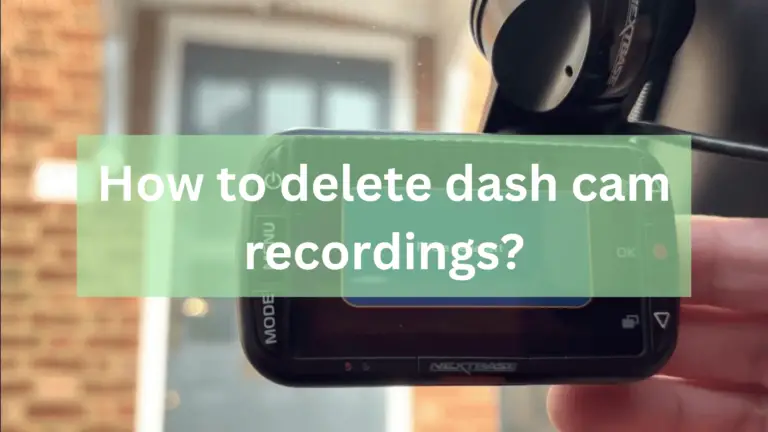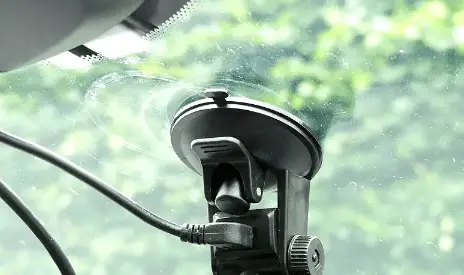How Long Do Police Keep Dash Cam Footage?
In an era of increased scrutiny of law enforcement activities, how long police departments retain dashcam footage has become a topic of great interest. The public demands transparency and accountability, while officers rely on video evidence to ensure accuracy in their reports. How long do police keep dash cam footage?
The retention period of these video recordings can vary greatly from one jurisdiction to another, ranging from 30 days to 180 days. As these videos capture critical moments during police interactions, their retention period raises questions about transparency, accountability, and the potential impact on criminal investigations.

In this article, we explore the reasons behind these varying retention periods and the potential implications of transparency and accountability in law enforcement.
Why Don’t Police Keep Dash Cam Videos Forever?

In legal terms, the statute of limitations sets a specific timeframe for legal action on a particular offense. If a video is stored indefinitely and an incident captured in it becomes subject to legal action after the statute of limitations expires, the footage could serve no purpose whatsoever.
Moreover, holding onto videos for extended periods also raises significant privacy concerns. With technology constantly advancing and data breaches becoming more frequent, ensuring the security and privacy of stored videos is challenging.
Holding onto vast amounts of personal information comes with inherent risks, such as unauthorized access or potential misuse by malicious actors. As society becomes more conscious about safeguarding personal data and privacy rights gain more prominence, carefully considering how long to retain videos becomes all the more critical.
Who Has Access To Police Dash Cam Videos?

The accessibility to police dashcam videos is multifaceted, shaped by factors such as accountability, privacy, legal considerations, and the need to maintain transparency. Here, we delve into the distinct parties with access to these recordings:
The person whose video is being recorded
The person whose video is being recorded generally only has direct access to police dash cam footage if it becomes part of a court case where they are a party involved or a witness. Even then, only authorized legal representatives can review it under controlled circumstances.
Law enforcement officials with authorization to view it
Law enforcement officials who have authorized access to police dashcam videos are the individuals responsible for recording, reviewing, and analyzing the footage. These officials may include police officers, detectives, supervisors, or other personnel within the law enforcement agency. They are crucial in ensuring these videos are used appropriately and effectively in various investigations.
What Is A Good Cause For Accessing A Dash Cam Video The Police Have?

One of the most compelling reasons to access a dashcam video in possession of the police is when you are directly involved in a relevant court case. This situation often arises when a legal claim or dispute involves you. Whether you’re the defendant or the plaintiff, having access to dashcam footage can play a pivotal role in presenting an accurate account of the incident.
For instance, if law enforcement has recorded a particular incident involving you, and you believe that the dashcam footage can support your case, taking the necessary steps to obtain that video is crucial. This process is typically initiated by you, your legal representative, or your lawyer, who can formally request the police department to provide the specific dashcam video relevant to your case.
Why Would You Need Dash Cam Footage From The Police?

Why would you need dash cam footage from the police if you firmly believe you are not at fault during a traffic stop? The answer lies in the power of visual evidence. In many cases, it comes down to a difference in perception – what the police officer believes happened versus what occurred. Access to dashcam footage can provide an unbiased record of the events and serve as crucial evidence to support your defense.
Frequently Asked Questions (FAQs)
Can I Get A Video Deleted Sooner?
Yes. In many countries, individuals have the right to request the deletion of any videos that contain personal information. This is because capturing and storing such data without consent violates privacy laws.
It’s important to identify what constitutes personal information to make this happen. It typically includes license plate numbers, identification cards, faces of individuals not part of public events, or any other details that can be used to identify someone. Once you have identified such footage in your dash cam recordings, you can contact the manufacturer or provider and request its removal.
How Does a Police Dash Cam Work?
A police dash cam is a miniature video camera mounted on the dashboard or windshield of a patrol car. It continuously captures high-definition footage that can be used as evidence in case of accidents, arrests, or any other incidents involving law enforcement officers.
The cameras are fixed with wide-angle lenses to comprehensively view their surroundings. They are typically activated automatically when certain conditions are met, such as when the officer turns on their emergency lights or siren.
Why Is Having Dash Cam Videos Beneficial?
Having dashcam videos can prove to be incredibly beneficial, particularly when it comes to insurance claims. In the event of an accident, these videos can provide crucial evidence of who was at fault, which can greatly impact the outcome of any insurance claim.
Insurance agencies typically rely on police reports and witness testimonies, which can sometimes be biased or unreliable. However, having video footage from a dashcam eliminates any ambiguity or doubt in determining liability.
Additionally, dashcam videos can majorly affect lawsuits and property disputes. Whether it’s an incident involving a hit-and-run driver damaging your property or a dispute with a neighbor over property boundaries, having video evidence from your dash cam can significantly strengthen your case.
Final Thoughts: How Long Do Police Keep Dash Cam Footage?
The length of time that police departments keep dash cam footage varies significantly depending on the jurisdiction. While some agencies retain the recordings for as little as 30 days, others maintain them for up to 180 days. This inconsistency raises concerns about accountability and transparency in law enforcement.
Citizens and advocacy groups must advocate for standardized guidelines regarding dashcam video retention periods, ensuring that these recordings are available appropriately to facilitate investigations and uphold public trust. We hope this article has provided a detailed understanding of this topic, allowing you to make informed decisions and take appropriate actions if needed.






